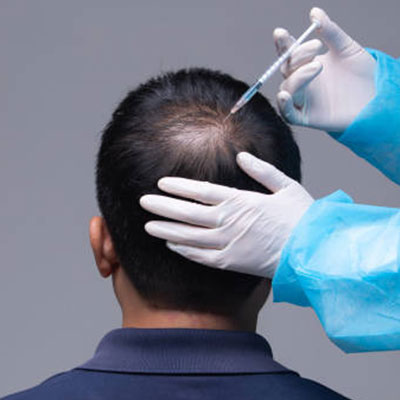Call Us - (360) 719-2683

Nonsurgical hair loss treatments/ medical hair restoration
So far there are only two medications that are FDA approved for hair loss: Minoxidil ( Rogaine), and Finasteride (Propecia).
Minoxidil can be used for both male and female hair loss, although at different concentrations. It is mostly meant to slow, stop, and occasionally, reverse the hair loss. The effect of Minoxidil is not permanent, and lasts only as long as you continue using it:
The moment you stop using it, the hair loss gradually goes back to the original state, meaning that the hair which was destined to fall, now falls out. Any non-surgical approach to hair restoration should include multiple different treatments to address the ongoing hair loss from different angles.
Finasteride:
Just as with minoxidil, its effect lasts as long as you take it, but it has more potential to actually grow hair. It is a pill, and only available by prescription, and it has only been cleared by the FDA to be used in men. The use of it in certain populations of women can also be justified off-label, depending on the condition and age.
Topical and oral minoxidil: In both men and women, Minoxidil is usually the first line of defense against hair loss. This can be used as a topical solution/foam, or more effectively, as a pill taken daily.
Another option would be low level laser light therapy ( LLLT). A few devices are available on the market, and they can be in the form of hand held laser brushes, helmets, or laser caps.. These are as good as topical minoxidil in some studies and help with thickening and in fact, some hair regrowth. Again the effects last as long as you continue the treatment.
One of the recent additions to this lineup is PRP, or PRF. PRP is the part of your blood that contains platelets, which in turn releases growth-promoting factors into tissues when injected. Under specific protocols, your blood is drawn and spun in a centrifuge, and the platelets are extracted and re-injected into the area of hair restoration. It has been shown to reduce or reverse hair loss in select hair loss patients as well as significantly improve the results of hair transplant surgeries when used at the time of the procedure. A great deal of research is currently focused on regenerative medicine to create new hairs and provide newer nonsurgical treatments for hair loss.
Your own stem cells, from your own fat tissue can also be used to stimulate hair growth. We harvest your fat under local anesthesia (takes under 30 minutes), and process and purify it according to a strict protocol, and turn it into an injectable slurry of stem cells. Then we inject this stem-cell solution into your scalp. This induces hair regrowth. This method is so revolutionary and new that even many other hair restoration centers are not able to do it or are not aware of the methodology and its How-To.
Finally, and most recently, Exosomes as well as Polynucleotides (Rejuran) have gained popularity for hair regrowth, either with or without microneedling. Exosomes are stem cell secretions in cell culture, that promote healthy growth.
Polynucleotides (Rejuran) are fragments of salmon DNA that have been shown to induce tissue repair and hair regrowth. The combination of exosomes and Rejuran is perhaps the most revolutionary biological and non-surgical hair-restoration therapy. As with any other hair restoration treatment, yu will need maintenance treatments to keep the hair that would otherwise be subject to hair loss.
We routinely recommend hair loss supplements to help with medical and surgical hair restoration, as well as an occasional medicated shampoo to help with control of the hair loss.
If your medical treatment is not effective to give you the looks you want, then we can help with hair transplant surgery.
We look forward to serving your needs with the best hair transplant clinic in Portland/ Vancouver area.
